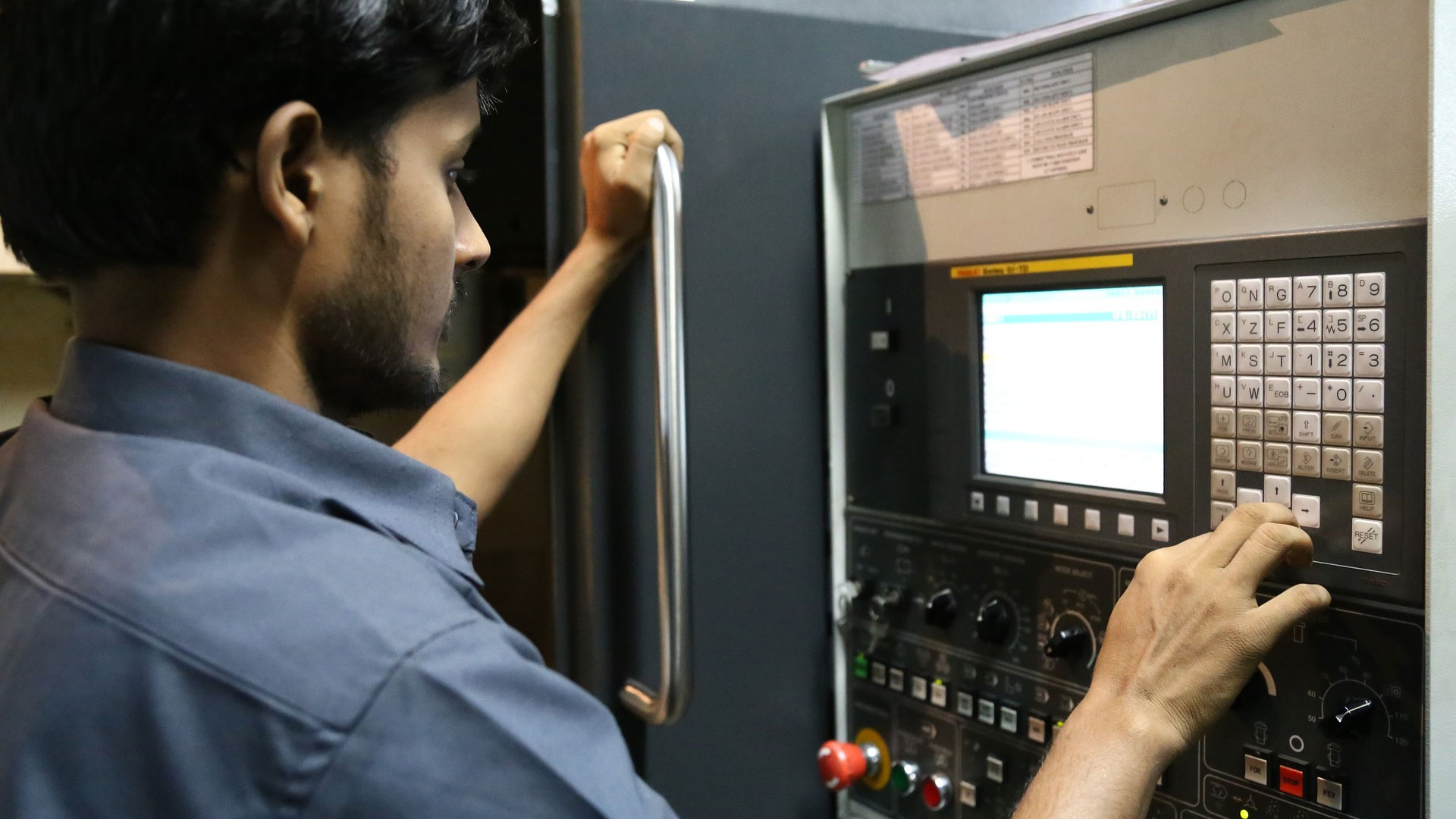Practice Worksheet
Transcript
Disclaimer
I am using an automatic transcript service as it is not possible for me to do it on my own and I cannot afford human transcription at the moment. The service claims to have about 95% accuracy, which means there will still be some mistakes, so my apologies for having a less than perfect transcript, but I hope I can afford human transcription soon and I will solve this problem. However, the service is pretty good, and the transcript is almost perfect.
Transcript
Welcome to a new episode from English plus podcast. Today, it’s about business English. We will talk about work and jobs. We will talk about the common question. What do you do? But we will try to answer this question in different ways, other than just saying I am a doctor or I am a teacher, et cetera. And we will also talk about the different combinations we can use the word work.
[00:00:28] We can use it in different ways and these different ways are very useful when you want to talk about your work or job. And finally, we will talk about types of jobs and types of work. So without further ado, let’s start talking about work and jobs in today’s business, English episode from English plus podcast.
[00:00:49] Don’t forget that you can find the transcript of this episode in the link. I will leave in the description. And if you decide to join the premium option for English plus podcast, by becoming a patron on Patreon, you will also receive a PDF worksheet with exercises. You can use to practice what we’re learning in these episodes and make sure that you remember them and you can use them in your own writing and speaking.
[00:01:15] So now without further ado, let’s start right away. What do you usually answer when people ask you, what do you do? Well, I usually say that I am a doctor. I am an engineer. I just simply say what I do and that’s about it. That’s right. But if you come to think about it, that could be a conversation killer.
[00:01:36] If you don’t follow it up with other things. For example, if you ask somebody, what do you do, especially if you’re trying to make small talk, is it enough just to say that I’m a teacher, that’s it. Period. The other person might ask another question, for example, what do you teach? Where do you teach, et cetera?
[00:01:55] Where do you work? What school, or what university do you teach in? And then you answer, I teach in et cetera, university, but then, you know, just, if you don’t give details about what you do, the conversation is over. And that is if we’re just talking about small talk, but when we talk about it in the context of business English, it’s different.
[00:02:20] If you are asked to talk about your work or job in a job interview, it’s a different story because it is not enough to tell them that you do this because they already know what you do. You need to give some details and to give those details, you will need to talk about where do you work? What do you work on?
[00:02:42] Whether you run some projects or not, who do you work under? Who do you manage your responsibilities? What are your in charge of et cetera? So these are the words that we’re going to focus on and we’re going to learn how we can use them to answer the question. What do you do even better? Sounds good. So where do you want to start?
[00:03:04] Well, actually first let’s start with a very obvious and very easy work for, and work on. We use this word work obviously is the most versatile word to use when we want to talk about work or jobs. But what is the difference between work for, and work on? Well, Obviously you work for a company and you work on a project or a type of project.
[00:03:30] That’s right. I can say, for example, I work for a large European car maker, but you can go to details and talk about what exactly do you work on? And you say, I work on car design. So as you can see, I work for a company, but I work on a project and that is very important. If you come to think about a list of things that you want to talk about, when you want to get into some detail about what you do, you need to talk about who you work for and what you work on.
[00:04:05] So remember, these are very important work for and work on. Then what else would you say when somebody asks you about what do you do? Well, I will talk about the projects I manage about my responsibilities. If I work under people or how many people work under me. So here we have another combination with word work.
[00:04:27] Work under, but first you said you want to talk about the people you manage or the projects you manage. For example, we can say I run the design department and I manage a team of designers, 20 people work under me. For example, first you said I run the design department that has the same meaning of saying, to manage the department, to be the manager of this department.
[00:04:52] When you run a department, you manage it. And here you can use the word manager as well to talk about a team of designers to talk about people. I manage people and 20 people work under me. So when we say work under that is not literal. Of course, we’re just talking about who report to me. When you talk about people who report to you, that means people who work under you, and obviously you may be working under somebody else.
[00:05:23] And if you work under a person that means this person is your supervisor or your manager, and you report back to him or her. That’s right. And if I want to talk about responsibilities, I can say one of my main responsibilities is to make sure that new model designs are finished on time. I’m also in charge of design budgets.
[00:05:49] That’s great. You can talk about your responsibilities. Of course. When somebody asks you to talk about your responsibilities, you’re not going to list all of your responsibilities, especially at a job interview. At a job interview, you would want to choose the responsibilities that are most relevant to the people who are interviewing you.
[00:06:10] So here’s a very important and useful phrase. You can say one of my main responsibilities is to do this and to do that. So here you’re telling the person that it is not the only responsibility I have. You don’t go and say, my responsibility is to do this as if you are not doing anything else in the company, or you didn’t have any other responsibilities in the company.
[00:06:38] So a very useful phrase or a useful expression to use here is one of my main responsibilities is to do this. Like here we said is to make sure that new model designs are finished on time. That’s one of my main responsibilities and there is another expression we can use as well. We can say I’m also in charge of, in charge of.
[00:07:02] Has the same meaning of responsible for you can say I’m responsible for, in our example, here, we said design budgets, or you can say I’m in charge of design budgets. Now when you go to a place and you want to talk to the manager, or you want to talk to the person who is responsible, you can ask who’s in charge, who’s in charge around here.
[00:07:27] I want to talk to the manager, or I want to talk to the person in charge in charge means to be responsible for something, for a team, for a place, et cetera. So that is another useful expression we can, we can use to answer the question. What do you, Ben, do you think we have more to cover here other than work or work on run, manage work under responsibilities and in charge?
[00:07:56] Yeah, I guess we can talk about ideal with. When you want to talk about specific things or people, or even responsibilities that you deal with some tasks that you deal with when you work in a place. And as you mentioned, we can use responsible for, instead of in-charge of because they are interchangeable.
[00:08:19] And of course we can use work with is you want to talk about the people who you work with, and that is different from saying work for, or work under when you work with people, you’re both at kind of the same level or you’re kind of coordinating things. So it’s not that you work for them or you report to them.
[00:08:41] That’s right. Let’s give our listeners an example. I will give the example here. I deal with a lot of different people in the company. I’m responsible for coordination between design and production. I work with managers at our manufacturing plants. So here in this example, I said that I deal with a lot of different people in the company, and that’s very important to say that I have a lot of communication with people.
[00:09:10] I’m a team player. I work with a lot of people from different levels of management. And here I’m responsible for coordination between design and production. That’s one of the things I’m in charge of I’m responsible for. There are just two ways of talking about the same thing. But remember sometimes, especially when you are at a job interview and you want to talk about the same things you are responsible for, you would want to change from, in charge of and responsible for not to be repetitive.
[00:09:44] You don’t want to go like. I’m responsible for this I’m responsible for that four hours or four, you know, just like giving too many examples, using the same word. It’s always a good way to use different language and responsible for I’m responsible for this. I’m responsible for that. And then you can talk about the things you’re in charge of.
[00:10:05] It’s always a good idea to know how to say the same thing in different ways, especially job interviews. And finally here, we said, I work with managers at our manufacturing plants. Remember when you say I work for, you can say, I work for a company or you can say, I work for a person. You can say, I work for John or I work for Ben.
[00:10:29] Ben is my boss. So I report to Ben. When you say I work for this person or that person, that means this person is your supervisor, your manager, and you report to them. But when you say I work with Ben, like here I work with Ben, neither one of us is the boss of the other. We work together. So I work with let’s wrap it up.
[00:10:54] Ben, will you help us with that? We have a couple of things to remember. Yeah, sure. We talked about in charge of responsible for and responsibility. Now, what I want you to remember is the things you use after these expressions. I want you to remember that after saying in charge of you usually use a noun.
[00:11:19] For example, you say I’m in charge of sales, I’m in charge of marketing, et cetera. With responsible for, of course you can also use a noun, but for those, you can use a verb with ING. For example, you can say I’m responsible for creating reports. If you want to talk about a specific task, you can say that I’m responsible for doing something.
[00:11:43] So you can say I’m responsible for doing something. And that may be. The only difference between in charge of and responsible for, we’re not saying what’s right and what’s wrong, but what’s usually used with in charge of, and what’s usually used with responsible for usually you say in charge of with announ and responsible for, with an ING verb.
[00:12:08] And that means, usually say I’m in charge of blends, for example. And when you want to use the verb you use responsible for. It’s more common. You say I’m responsible for creating plans. And now we come to the word responsibility with responsibility. You can use an infinitive afterward or an ING. For example, you say one of my responsibilities is to make sure that something happens or you can say one of my responsibilities is making sure that something happens.
[00:12:39] So you can say is to make sure that is the infinitive obviously. And you can say is making sure. That’s something happens. Both are right. Remember that all of these are possible, but remember not to say I am a responsible, because you might want to use it as the one word that defines who you are in this place.
[00:12:59] I am a responsible, I am zero responsible. Don’t do that. Responsible is an adjective. So we don’t use it with a or with, uh, in this case. So that was about how you answer a simple question. Like what do you do now? Remember here it’s business English, and that’s why we made it a little bit more complicated, but it’s not about complication.
[00:13:20] It is about. Knowing how to answer this question in a professional way. And we’re just trying to help you with the language. You need to answer this question in a professional way, or at least to sound professional. And now let’s move to another point and that is word combinations with work. So obviously when we talk about work and jobs, the most common word to use is the word work itself.
[00:13:45] Well, obviously work is a versatile word. We can use it in many different contexts. Let’s start with saying if you work or if you have work, is there any difference between them actually? There’s no difference if you work or have work, you have a job. You can say I work or I have work. And both are fine.
[00:14:05] And that simply means that you have a job, but you don’t say that I have a work. You don’t use eight. You don’t make it. Countable work is an uncomfortable now. So remember that you say I have work and that’s fine. You say I have a job and that’s also fine, but you don’t say I have a work. Work is also the place where you do your job.
[00:14:28] So if somebody asks you where you are, you can answer that I am at work. But remember, don’t say though, with work, if you mean the place you don’t usually say at the work or to the work that’s right. And here we have some useful phrases with work that you might want to know about. For example, we can say the economy.
[00:14:50] Is growing fast and more people are in work than ever before. The percentage of people out of work has fallen to its lowest level for 30 years. What does that mean? When we say in work, that means they have a job. When we say out of work, that means they don’t have a job without a job. Like when we say unemployed.
[00:15:11] So here we have two useful phrases using the word work we say in work, that means you have a job out of work. That means you don’t have a job without a job. And here I will give you another example to see how we can use the word work in different ways. For example, I can say I work in a bank in New York city.
[00:15:32] I leave for work at seven 30 every morning. So you see, we can say I leave for work, but as I said before, you don’t save for the work or for up work, for work, with nothing it’s uncomfortable now. And when you say it this way, people will know what you mean. You’re talking about the place where you work. So I leave for work at seven 30 every morning.
[00:15:55] I go to work by train and subway. I get to, or you can say I arrive at work at about nine. So here we say, I go to work and again, there’s no aid or the, where you can say I get to, or I arrive at work at about nine I’m, usually at work till six. So where are you now? I’m at work. You can say that, but again, because it is a government mistake.
[00:16:23] Forgive me for reminding you over and over about this. You can’t use a or the, with work. You just say I’m at work, that’s it. And finally you can say, luckily I don’t get ill very much so I don’t often take time off work. And that means away from work due to illness. So when you talk about time off work, that is the time you spend away from work because you’re sick.
[00:16:50] That’s very good. So I hope you learned a lot about the word work. Which is a versatile word, a word we can use a lot. When do we want to talk about our jobs or work? And now finally, before leaving you, I would like to talk about the types of jobs and types of work. Well, when we want to talk about jobs, Obviously we have two main types.
[00:17:16] We have a full-time job and we have a part-time job. So a full-time job is one for the whole of the normal working week. And usually it comes with benefits. You have insurance, you have. Other things because it’s a full-time job, but sometimes you don’t have this full-time job. You don’t work every day or you may not work for the whole day.
[00:17:39] You may come at eight and leave at 12, for example are one. And that doesn’t mean that you have a full-time job. And sometimes she may go to work on Mondays and Wednesdays, but not on the other days of the week. So that cannot be called a full-time job. A full-time job is usually. Uh, nine hour or eight hour day jobs, four, five days a week.
[00:18:02] That’s the usual thing. Of course. Some are more, some are a little bit. Yes, but that is a full-time job. Part-time job is for less time than that. And you say that someone works full-time or part-time you can use the expression full-time and part-time not only to describe jobs, but you can also use it with work.
[00:18:23] You can say I work full-time or I work part-time and if we want to expand on this a little bit, we can talk about permanent and temporary jobs. And you might say that permanent and temporary are similar to full-time and part-time, but they’re not exactly that part-time and full-time referred to how many hours do you work every week?
[00:18:47] How many days, et cetera, but it doesn’t have to be permanent. If you have a full-time job, it might be permanent or might be temporary. Maybe you work five days a week, nine hours a day, but that’s still temporary. You’re going to work like that for a couple of months and that’s it. It’s going to end. It finishes after a fixed period.
[00:19:09] That’s why we call it a temporary job. And maybe your part-time job is permanent. Maybe it does not finish after a fixed period. Maybe you have a part-time job and that’s the agreement you have with the company or the people who you work for. But that doesn’t mean it’s temporary. It is permanent, maybe it’s permanent.
[00:19:28] And that means it does not finish after a fixed period. So a permanent job does not finish after a fixed period. A temporary job finishes after a fixed period. And that is also very useful. When we want to talk about the jobs we have, whether we have a full-time job, a part-time job, we work full-time part-time or if we have a permanent job or a temporary job.
[00:19:54] So that brings us to the end of this episode. Remember, we have talked about this different ways. We can answer the common question. What do you do? And we gave you different ways you can use to answer this question, and that can be specially useful when you are at a job interview, because you just don’t want to go.
[00:20:12] Like I do this and that’s it. No, you want to use some details and we talked about word combinations. We can use with work. And finally, we talked about types of jobs and types of work. So I hope you found the information we shared with you in today’s business, English episode. Useful. Next week, we will talk about ways of working, working hours, nature of work and other things as well.
[00:20:37] But until then, I would like to thank you very much for listening to today’s episode. Remember, you can find the transcript in a link. I will leave in the description of this episode. And remember, if you decide to become a patron of this show on Patrion, you will have the option to receive a PDF worksheet, to practice the information that we learned here today to practice these words, make sure you remember them and you can use them correctly.
[00:21:03] With that being said, Ben and I would like to thank you very much for listening to our episode today and we will see you next time.











0 Comments